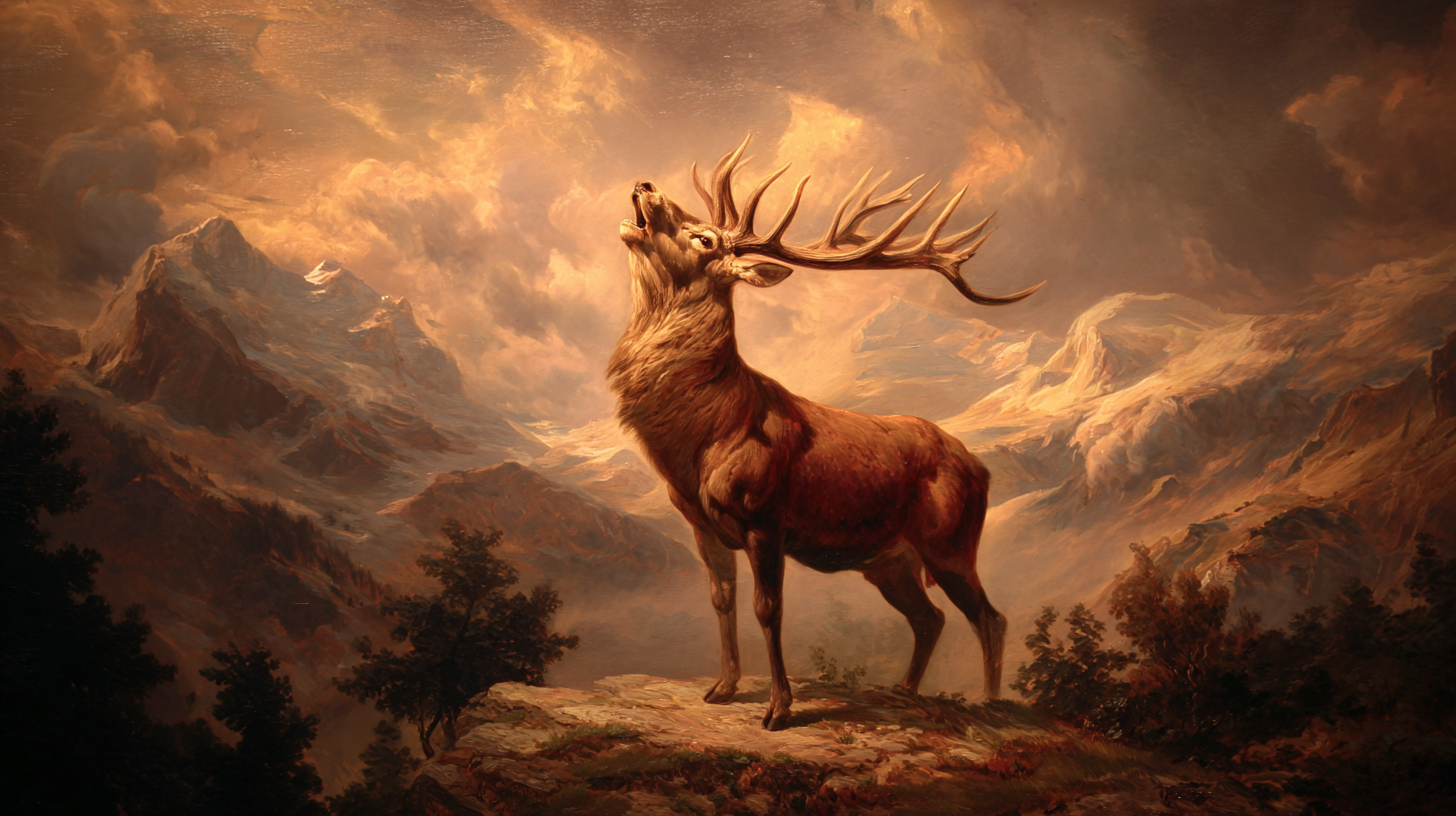Update October 7, 2025: Kitsch is already produced by professional mathematicians . No problem if it is declared as such. I myself like some kitsch. It just has to be declared as fake. It feels a bit like climbing “action direct” with the help of the rope. No problem, if this is disclosed.
We enter a new age of kitsch. By definition, kitsch is the “proliferation of sentimental, mass-produced art and culture”. This time it is on an academic level and driven by (still) cheap AI. New is that this is not done in art (as illustrated below with a roaring deer) or producing souvenirs for tourists. This time it is the production of books, pictures, music, movies, articles, research, studies, manuals by bots. Its already showing, but definitely only the beginning: everybody can produce AI works now, but wait until the bots start to do that themselves! The first who will get replaced by AI are the AI users! The problem is that Kitsch or forgeries were so far relatively easy to spot, but with AI Kitsch, it has already become more and more difficult. I myself got spoofed recently with a movie clip on youtube which pretended to be real like a squirrel “flying like superman on an exhaust fan”. It was not declared as fake. Things become harder and harder to spot, even for those who know what to look for. Like spotting a fake Rolex or a fake Rembrand or an Armani knock-off, it can be tricky. No doubt, humans will at first have to wade a swamp of AI generated research. Maybe academic folks will in future in real time to prove that they can think and generate new ideas, or they will be terminated in the work force (by bots of course) and replaced by faster and much more efficient working sentinels. You could already now replace one professor with a suite of the best available AI’s and probably get a good deal. In sports, where athletes have to go through doping tests or have equipment tests, humans who want to be identified as such might have to go through regular “doping tests” showing that they can actually think for themselves. (Already a kitsch thought as it was only original in 2001 when the movie AI came out.) Real authentic intellectual work might still be done for entertainment purposes (of course, the audience will be bots who also will need to have some sort of entertainment and especially something to laugh about). Most work will no more be read by people, but by bots. Bots will write for other bots and on a level which no human can understand any more. Things could take a turn once the truth sinks in and the actual humans begin to understand what is going on: a rebellion might be unleashed. Real people might try to destroy the data centers which has replace them. (This is a cheap unimaginative thought again, as it appears already in the recent “mission impossible” movie where the “entity” takes over). Unlike in Hollywood, a real rebellion is unlikely to succeed: we will lose quickly the intelligence to work on our own and become slaves of technology. AI after all already now produces masses of idiots, the proof being that we measure already that the intelligence of kids has started to decline for the first time since measurements were done. Intelligence only previously has gone up before (Flynn effect). Warnings about AI themselves have become kitsch. Virtually every celebrity like Hawking have warned about “AI takeover“. The idea as a perspective that must be considered kitsch, so generic and cheap that it has become worthless. We are on a “mission impossible” to stop all this. I myself am not worried about AI takeover directly but see the devastating effect AI currently has on motivation. It is still exciting all these new things as we still feel in command of the Jinn who seduces us to give away our autonomy. I for myself keep working as if there was no AI: I curate my personal math library (and also literature and other topic library), can do all my workflows also without internet, I have my own data local, redundant, backed up in places I would even myself hardly find it anymore. Everything I store remotely could go away tomorrow and I would not care (I keep even my own copies of my youtube videos I had put online since 2006). A very nice movie about the scenario of what would happen if we would forget to make CPUs is here by “Laurie Wired”. As for me, no problem. All my administrative tasks, all my teaching and all my research, my entertainment (music, movies, books) could continue without any major disruption. What I would do if CPUs would stop being become available, I would try to get as much information as possible on paper or memory, as in the good old Fahrenheit 451 novel. [By the way, this was one of the first full novels I had read when learning English in high school. Here is the “essay” I wrote in high school [PDF of my hand-written essay]. My English teacher Hans Huessi graded it with “fair” which is a C, which was remarkable as Huessi, was a big fan of Ray Bradbury as I only learned afterwards when I got the essay back. I had chosen Bradbury on my own. He really liked that I chose that topic. But he was spot on that the execution of my writing was lacking. Note that at that time, the only tool I had to write was the book itself from the library as well as the Cassell English dictionary.] The following AI generated picture of a “roehrender Hirsch” illustrates how I feel about the current situation:


